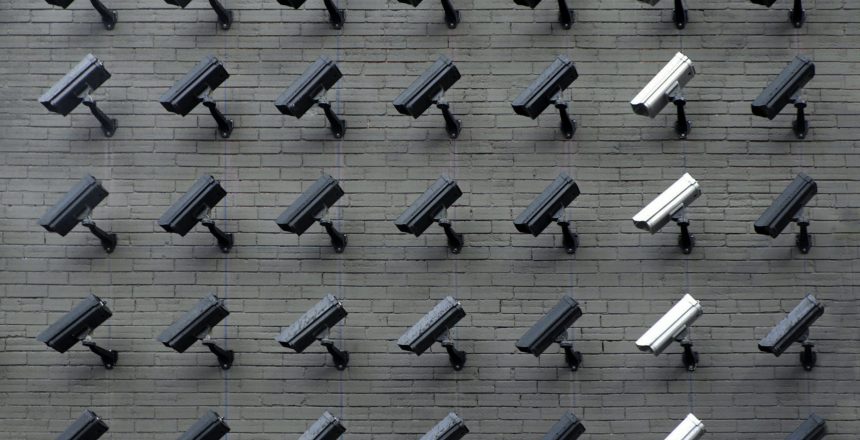Rising above a new wave of data collection resulting in oceans of consumer information
Back in the 80s, Rockwell and Michael Jackson had a massive hit with “Somebody’s Watching Me.”
Oh, if they only knew what surveillance and data collection norms awaited us today. Maybe we could all land hit singles singing about our experiences?
Last month, Ina Fried over at Axios published a great piece about the continued evolution of thinking and practices around data collection.
It seems just as Big Tech players like Apple and Google are reigning in data collection practices*, we’re simultaneously seeing a proliferation of devices that are collecting and storing data all the time.
Autonomous vehicles and drones. Smart doorbells. Digital home assistants. Different form factors, but all trained to always listen, watch, or both.
Let’s really dwell on that word “always” for a moment.
On the internet or in the mobile app world, we’ve become accustomed to data being collected every time we click or interact. If these clicks resulted in treasure troves, the data being collected by emerging hardware today could only be described as oceans of data.
Concerns are mounting because these devices don’t just capture data about the intended user but everyone in the periphery. Chances are your Ring doorbell points directly at your neighbor’s house. Those autonomous cars are catching everyday activity on every street.
All that data? The video, the audio, the location info? Maybe it gets sold. Maybe it leaks or gets hacked. At a minimum, we know it’s not uncommon for it to get wrapped up in requests from law enforcement. Sometimes, manufacturers willfully (even gleefully?) enter into agreements to openly share it with the authorities.
There are credible arguments for and against these practices. But that’s not the point of this post.
We’ve previously covered how location tracking in our industry can lead to nefarious practices.
Of course, it’s not just about location, as we’ve focused on before. It’s about all data.
Why are Google and Apple reigning in data collection? Because consumers have been burned badly when data collected and stored by huge companies is eventually stolen, leaked or simply sold to the highest bidder.
That asterisk I slipped in earlier when describing Apple and Google’s plans to limit data? That’s to simply acknowledge that in reality, these companies plan to just keep more data for themselves. In other words, “we understand that you don’t trust our partners, but you’ll always trust us, right? And it’s totally worth it because it will help us deliver a totally awesome experience for you!”
I’m not so sure consumers are really buying that line.
Just because you can doesn’t mean you should
In the ad biz, we sure have access to oceans of data if we want it. But from BRIDGE’s perspective, we absolutely DON’T want it.
Ethical and privacy reasons aside (though these are important and guide our market approach), truthfully, we don’t need all this data to do our job well.
Yes, it’s easy to collect. Yes, it’s valuable. Yes, we could find someone willing to buy it.
But to what end?
Interactive advertising has the power to move markets and grow industries. We have the opportunity to establish meaningful relationships between consumers and the brands they care most about. Throwing all that away in the name of making a quick buck isn’t just morally wrong, it’s really terrible business.
“Data minimization” is being built directly into GDPR. Expect it to appear in more laws and regulatory requirements in more areas of the world.
This is a very good thing. Because it forces the more unscrupulous among us to clean up their acts. And that strengthens the reputation of our whole industry. Most importantly, it will ultimately prove that collecting every data point possible isn’t necessary to achieve the holy grail of advertising: deliver the right message to the right person at the right time.
So what does data minimization look like in practice?
For our part, it means understanding where someone shopped without using location. It means understanding when someone likes to shop without logging dates and times. Or what types of places they like to shop without noting specific stores. And as always, no financial, health, or other sensitive data.
In other words, capturing snippets in time versus everything, all the time.
The connected hardware industry has got its work cut out for itself as the greedy data collectors among them give even the privacy-conscious among them a bad name.
Advertising had to go through a similar phase. But we’ve made great progress in developing trust in recent years.
Let’s stay focused on the larger goal and build on the great foundation that exists today thanks to both to efforts like GDPR and CCPA, as well as the individual initiative taken by companies that care about privacy.







